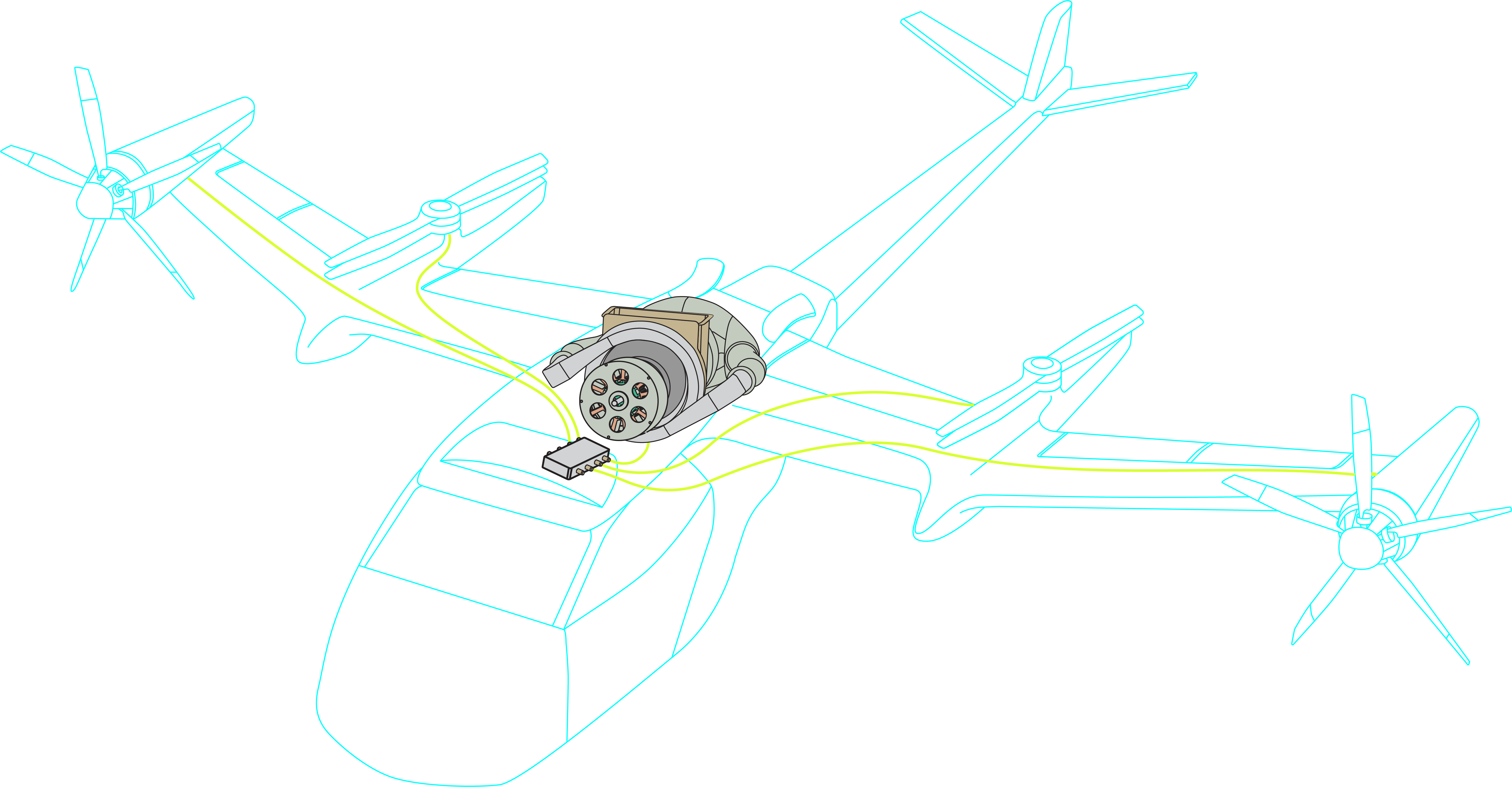
Hybrid Electric Propulsion (HEP) is crucial for enabling urban air mobility (UAM) a reality, reducing traffic congestion, promoting smart city development, and improving the comfort and safety of the society while emphasizing sustainability through renewable practices. The effective and timely implementation of urban air transport initiatives is highly dependent on advances in HEP technology.
At Azhir, we believe that:
- HEP is essential for the development of urban air transportation.
- 300 kW class hybrid propulsion systems are the best starting point for the implementation and expansion of urban air mobility services.
- HEP control relies on the integration of power electronics and thermal management and requires the application of machine learning and artificial intelligence techniques.
- Digital twins are critical for optimizing the design, manufacturing, operation and economics of HEP systems.
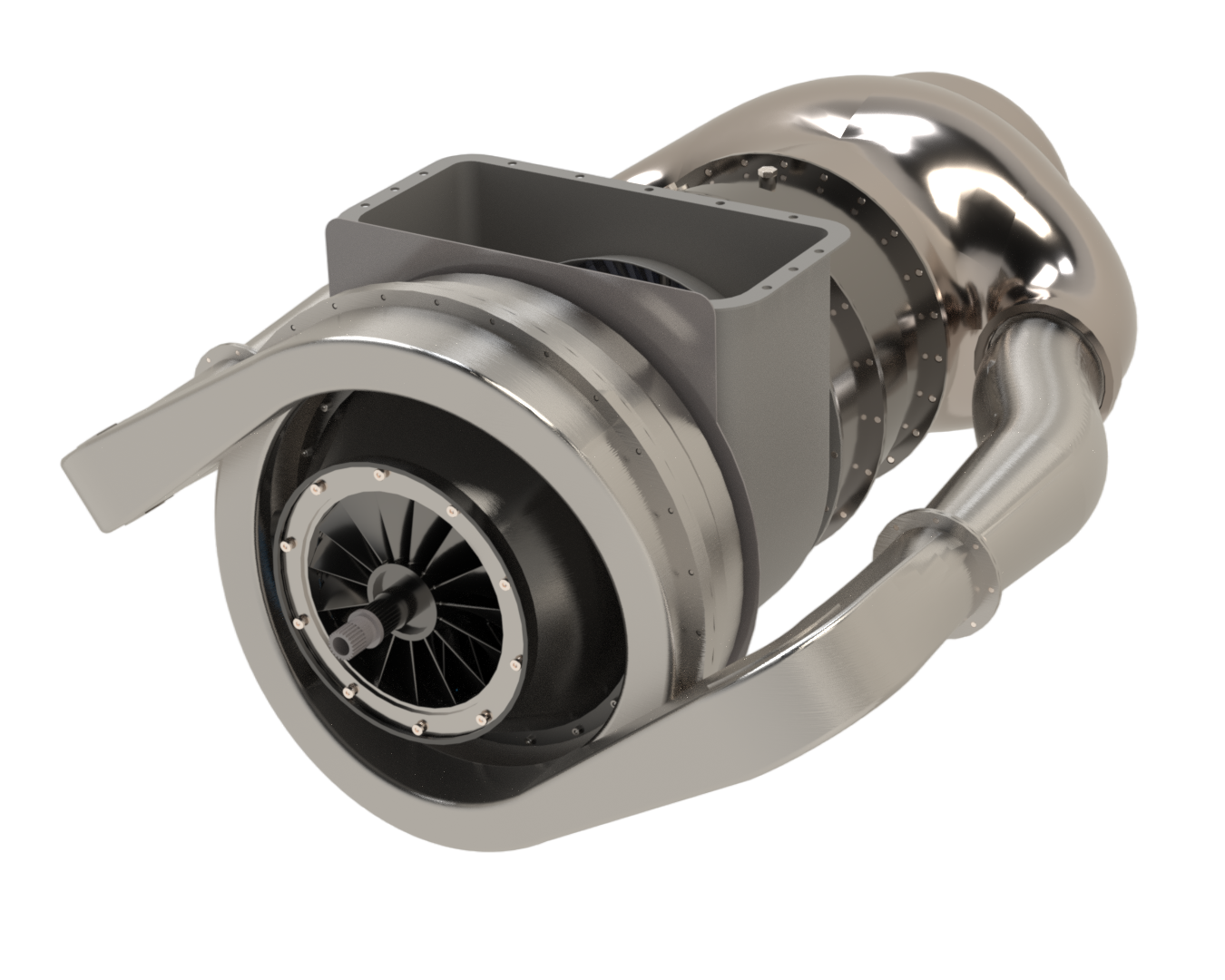
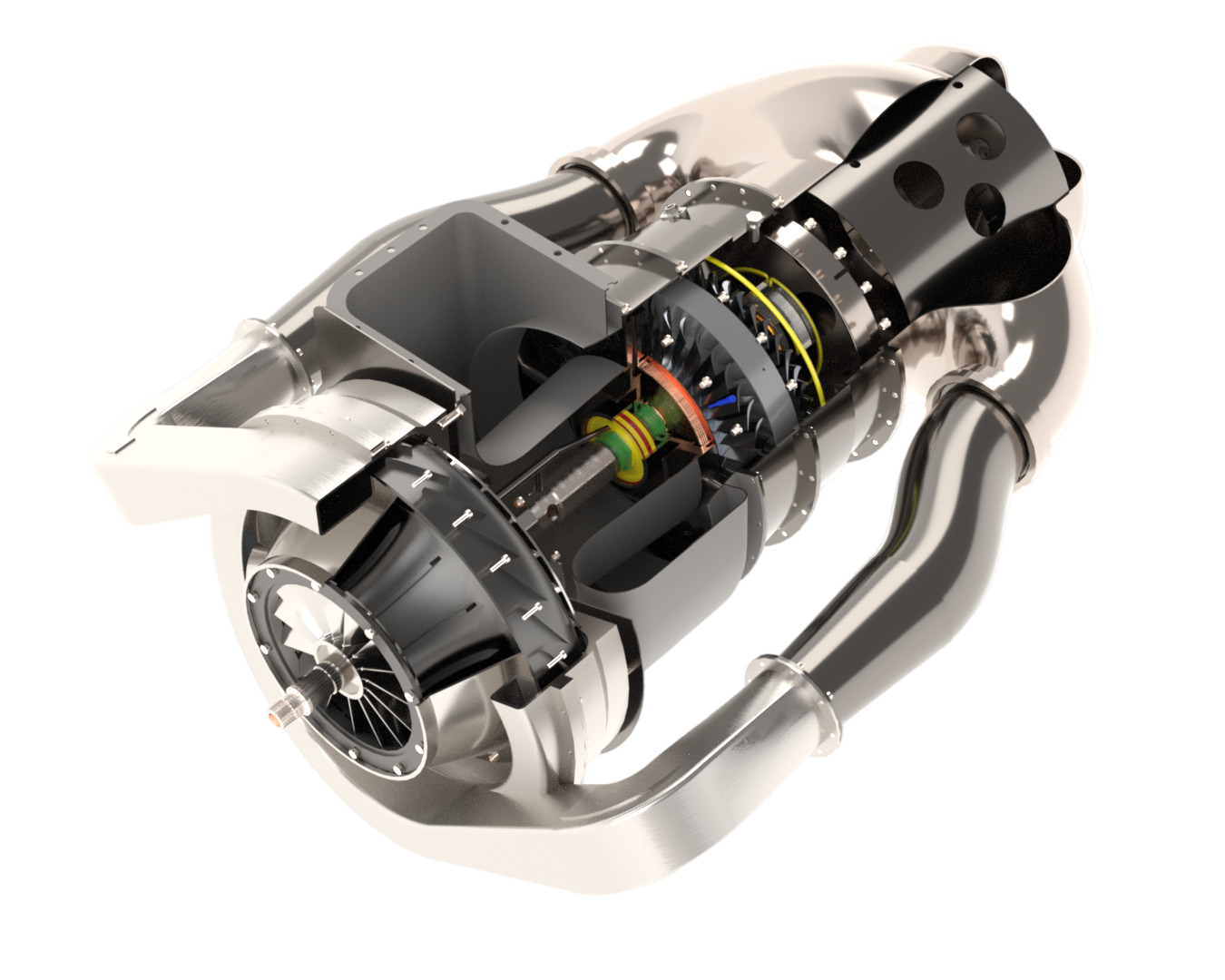
Azhir Turbo
Turbo-Electric propulsion is important for several reasons:
- Greater efficiency: Improving the overall efficiency of the aircraft by optimizing the power distribution between the engines and the electric motors, resulting in lower fuel consumption and lower operating costs.
- Reduced emissions: Reducing greenhouse gas emissions by integrating electrical components.
- Improved performance: Enabling better performance in terms of thrust control and responsiveness, improving the aircraft's maneuverability and safety.
- Design flexibility: Enabling more flexible and modular aircraft design as electric motors can be placed in optimal locations.
- Noise reduction: Achieving less noise pollution around airports and urban areas.
- Future proofing: Representing a step into the future of aviation through more advanced, sustainable and environmentally friendly technologies.
Azhir Magnetic
Permanent magnet electrical machines, such as motors and generators, are crucial for electric propulsion due to several reasons:
- High Efficiency: They offer higher efficiency compared to traditional induction motors, reducing energy losses and improving overall system efficiency.
- Compact and Lightweight Design: They are more compact and lightweight which is essential for applications where space and weight are critical, such as in electric aircraft.
- High Power Density: They provide higher power density and are beneficial for applications requiring high performance in a small package.
- Improved Performance: They offer better performance in terms of torque and speed control which is essential for precision control.
- Reduced Maintenance: They do not have brushes or slip rings and hence require less maintenance and have a longer operational lifespan.
- Environmental Benefits: They contribute to reduced environmental impact.
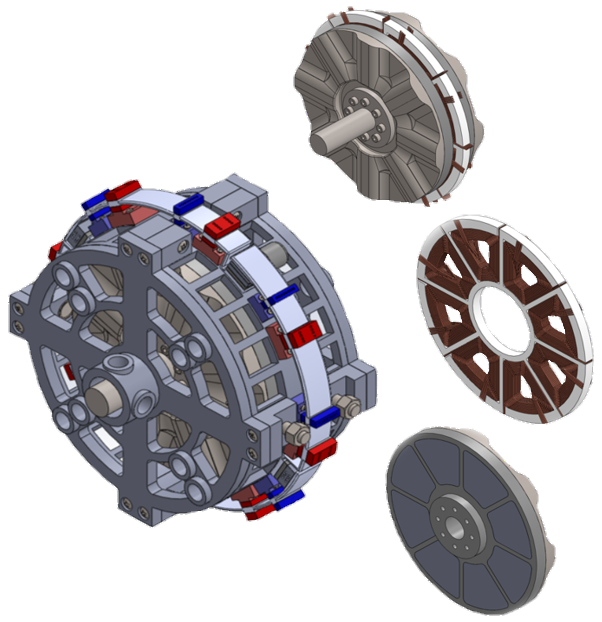

Azhir Control
FADEC (Full Authority Digital Engine Control) is highly important to electric propulsion for several reasons:
- Optimized performance: continuously monitoring and adjusting engine parameters in real time to ensure precise control of power distribution, optimal performance and efficiency.
- Improved efficiency: maximizing fuel efficiency and reducing energy consumption through precise engine control, increasing aircraft range and performance.
- Reduced pilot workload: automating engine control tasks, thereby improving overall safety and reducing the risk of human error.
- Improved reliability: providing redundancy and fault tolerance features to ensure the engine continues to operate safely even in the event of certain failures.
- Environmental benefits: contributing to lower emissions and a smaller environmental footprint and hence to be in line with the goals of sustainable aviation and electric propulsion.
- Advanced diagnostics: monitoring engine health and providing real-time diagnostics to enable proactive maintenance.
In summary, FADEC systems improve the efficiency, reliability and safety of electric propulsion systems, making them an essential part of modern aircraft design.
Azhir Intelligence
Digital Twins (DT), Machine Learning (ML) and Artificial Intelligence (AI), collectively referred to as the Intelligence Set, play a critical role in turbo-electric propulsion for several reasons:
- The Intelligence Set enables simulation and testing of various scenarios without physical prototypes. This capability enables the investigation of different configurations and parameters to optimize system performance under different operating conditions, resulting in a more efficient and effective design.
- The Intelligence Set efficiently manages energy generation, distribution and storage within the turbo-electric propulsion system.
- The Intelligence Set enables a virtual representation of physical assets and real-time monitoring and control. This performance optimization enables early detection of problems, which reduces maintenance time and costs while seamlessly tuning the aircraft and propulsion system for maximum efficiency and reduced energy consumption.
- The Intelligence Set can predict potential problems before they occur by continuously monitoring the health of the system and its subsystems. This proactive approach enables preventive maintenance and rapid response to situations, improving the reliability and longevity of the turbo-electric propulsion system.
- The Intelligence Set can adapt to changing conditions in real time. This enables adaptive control systems to maintain optimal performance in different environments and critical operating scenarios.
